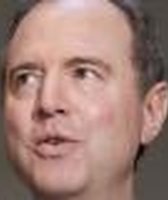Stand up for the facts!
Our only agenda is to publish the truth so you can be an informed participant in democracy.
We need your help.
I would like to contribute

Do government jobs, like those created by road construction, increase the number of private-sector jobs? We asked economists for their views.
Does a private-sector job boost the economy more than a government job?
That question sparked a lively debate between Carly Fiorina, a former corporate executive and Republican Senate candidate, and Paul Krugman, a Nobel Prize-winning economist and liberal New York Times columnist, on a recent edition of ABC’s This Week With George Stephanopoulos.
The two sparred over the government’s role is in promoting economic growth, an important question given the looming drop in federal spending known as the sequester. Some fear that it could throw the economy back into recession.
A reader asked us to referee the televised face-off, particularly this comment by Fiorina: "I think it's important to remember when we talk about the economy that a private-sector job and a public-sector job are not the same things. They're not equivalent. I'm not saying public-sector jobs aren't important, but a private-sector job pays for itself. A private-sector job creates other jobs. A public-sector job is paid for by taxpayers." Krugman took issue with her characterization.
We asked Fiorina and Krugman whether they wanted to participate, but neither got back to us. However, we interviewed a dozen economists from across the ideological spectrum.
Most of the economists we interviewed cautioned against declaring either Fiorina or Krugman right or wrong, since the academic research is imprecise and the answers involve opinions. So instead of making a Truth-O-Meter ruling, we'll explain the arguments here.
The support for Fiorina’s position
The most intriguing piece of evidence for Fiorina’s thesis that we found comes from a January 2012 paper by Valerie A. Ramey of the University of California at (San Diego)
Ramey concluded that "in most cases" when the government spends money, the result is that private-sector spending "falls significantly." Moreover, she found, government spending hikes tend to lower unemployment, but "virtually all" of the net job growth comes from government employment. This led Ramey to conclude that, "on balance, government spending does not appear to stimulate private activity."
When we reached Ramey, she said her study does indeed shed light on the Fiorina-Krugman debate. Her study shows that the government should be realistic about what it can and can’t do in influencing the economy. For instance, it might be better off focusing efforts on creating and maintaining public-sector jobs, such as refurbishing the housing on military bases or helping state and local governments avoid layoffs of productive public-sector jobs, as opposed to expecting a major surge in private-sector jobs. (Ramey described herself as a moderate Republican who believes "the government can play a very positive role in theory, but too often disappoints in practice.")
Others suggest that a variation on this theme. They say a government job with, say, a $100,000 salary, may not spur enough economic activity in the private sector to cover the upfront cost of the new government worker’s salary.
"The question isn’t whether a public employee creates no follow-on growth" from spending his or her salary in the broader economy, said Andrew G. Biggs, a resident scholar at the conservative American Enterprise Institute. "I’m sure he does. It’s whether he produces net growth."
It’s also important to note that Fiorina’s claim is shaped by some wonky details in how gross domestic product is calculated.
The oddity stems from the difficulty of measuring the government’s productivity. In the private-sector, there’s a straightforward way to measure economic output: How much money did people pay for a company’s goods or services in the marketplace? But how do you assign a value to buildings saved by a fire department? Or fractions learned by students? Or environmental damage averted by EPA regulations?
Because of this, the rules for determining what counts as economic output in the private and public spheres are different. Tara Sinclair, a George Washington University economist, often tries to illuminate this distinction by offering an example of two "paper-pushers" who are equally unproductive, one working in government and one working for a private employer.
"If the paper-pusher works at a private company, then he or she only contributes to GDP if their paper-pushing results in greater output for the company," Sinclair said. "In the government, however, we count government output by what it cost, so the paper pusher automatically ‘produces’ the amount of their salary."
This means that any government expenditure -- by its very definition -- increases GDP, while a private worker really has to truly earn their keep, and more, if they are going to help expand GDP.
Taken literally, this means that any kind of government work increases GDP. But Fiorina ignores this reality -- and with justification, since it’s really just an arbitrary accounting quirk. She’s focusing instead on the increases in private sector production that stem from hiring a private worker -- a development that has already met the profit-loss test and thus has created tangible improvement for the economy.
Finally, those who think Fiorina has a point note that any positive economic impact from a new government job will have to be paid out of tax revenues, unlike a new private-sector job, which can be paid from a company’s profits. In other words, government jobs, unlike private-sector jobs, come with a pesky string attached. Once the future tax revenues are factored in, the attractiveness of a government job falls relative to that of a private-sector job.
Support for Krugman’s position
The most obvious support for Krugman is rooted in common sense. If you’re looking at how money flows from a worker to a grocery store (or a car dealer or a landlord), it doesn't matter if the money comes from a government or private-sector worker. Assuming the two workers live in places with the same cost of living and exhibit the same spending preferences, they will both spend dollars on housing, food, cars, gasoline and other items in the same way. The technical term for this is a "multiplier" -- the portion of a dollar of wages or salary that ricochets around the larger economy, supporting private-sector jobs.
"Spending is spending," said Lawrence J. White, an economist at New York University's Stern School of Business. "There is no difference in multiplier effect from a private sector job or a public sector job."
Indeed, there’s been a growing blur between government jobs and private-sector jobs. Does it make any sense that a truck driver hired by the government and one hired by a private company working on a government contract would behave in radically different ways in the marketplace? As long as you adjust for the amount of their take-home pay, the answer is almost certainly no.
The more important question -- and admittedly a more difficult one to answer -- is whether the government is getting a better bang for its buck than the private sector is.
Like the government, private companies are prone to spending money in ways that don’t have as great a multiplier effect on the wider economy. (There is evidence, for instance, that countries with a higher proportion of lawyers have slower-growing economies than those with a higher proportion of engineers, because engineers help build new things that spawn more jobs.) But economists note that companies do face the unrelenting pressure of the marketplace, which acts as a more effective brake on dumb fiscal behavior than what the government typically faces.
"I am very happy that the government will be removing snow this weekend -- this will make it possible for a lot of private sector workers to generate output," said James Feyrer, a Dartmouth College economist. "On the other hand, if the government is paying people to dig holes and then fill them back in, this is not such a good thing. What you think about government versus the private sector depends heavily on what the government is doing with the money. As you might expect, people’s opinions vary on this."
What irked several of the economists we contacted -- and also irritated Krugman during the show -- was Fiorina’s apparent presumption that nothing government does adds anything to the economy. In reality, various levels of government hire workers to build roads and airports, to prepare students for future employment, to offer police and rescue services and to provide courts to enforce laws. In many ways, these services are a prerequisite to economic growth, not a barrier to it.
"Is a teacher or a firefighter working in any less of a job than I am?" asked Heidi Shierholz, an economist with the liberal Economic Policy Institute. "Fiorina is wrong in implying that public-sector jobs don’t create other jobs. They have huge ripple effects into the private sector."
Taking Fiorina’s perspective to its logical conclusion would suggest that "anarchy maximizes growth, which is ridiculous," said Bruce Bartlett, a columnist for Tax Notes, Fiscal Times and the New York Times' Economix blog who served under presidents Ronald Reagan and George H.W. Bush. "Obviously, teachers, police and many others contribute significantly to growth. The question is simply an empirical one—do we spend too much or too little on such jobs?"
Our Sources
ABC, transcript of This Week With George Stephanopoulos, Feb. 3, 2913
New York Times, "Are Government Layoffs the Problem?" Feb. 6, 2013
Kevin M. Murphy, Andrei Shleifer, and Robert W. Vishny, "The Allocation of Talent: Implications for Growth," Quarterly Journal of Economics, May 1991
Valerie A. Ramey, "Government Spending and Private Activity," January 2012
Email interview with Bruce Bartlett, columnist for Tax Notes, Fiscal Times and the New York Times' Economix blog, Feb. 8, 2013
Email interview with Dean Baker, co-director of the Center for Economic and Policy Research, Feb. 8, 2013
Email interview with Lawrence J. White, economist at New York University's Stern School of Business, Feb. 8, 2013
Email interview with Tara Sinclair, economist at George Washington University, Feb. 8, 2013
Email interview with Robert J. Barro, economist at Harvard University, Feb. 8, 2013
Email interview with Heidi Shierholz, economist with the Economic Policy Institute, Feb. 8, 2013
Email interview with David Card, economist at the University of California (Berkeley), Feb. 8, 2013
Email interview with Bruce Sacerdote, economist at Dartmouth College, Feb. 8, 2013
Email interview with James Feyrer, economist at Dartmouth College, Feb. 8, 2013
Email interview with Andrew G. Biggs, resident scholar at the American Enterprise Institute, Feb. 8, 2013
Email interview with Chris Edwards, director of tax policy studies at the Cato Institute, Feb. 8, 2013
Email interview with Valerie Ramey, economist at the University of California (San Diego), Feb. 12, 2013




















































